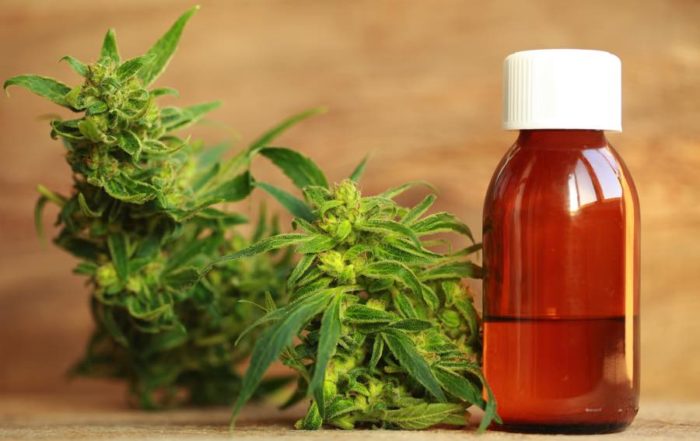Can CBD oil calm your anxious dog?
You probably already know that CBD oil is becoming more and more popular as an alternative medicine. It’s widely used to help alleviate symptoms of depression, anxiety, chronic stress disorders, and chronic pain. However, many brands have started marketing their CBD products, including CBD oil, to pets – especially dogs suffering from anxiety. But simply marketing a product for dogs doesn’t necessarily make it useful. So the real question is: “Does CBD oil help dogs?”.

The answer is simple: “Yes”. CBD oil products really can help calm down your anxious four-legged friends. Not only does the market of CBD oil for pets continue to grow, but countless pet owners have reported the successful use of CBD products on their dogs. Read on for some of their personal narratives and testimonies.
Can dogs suffer from anxiety?
Anxiety is often associated with the feeling of fear. However, anxiety is more than an emotion; it is a condition. Sufferers of anxiety worry constantly about future dangers, often which are irrational or come from imagined sources.
Dogs can also suffer from anxiety. The most common form of anxiety that dogs suffer from is separation anxiety, and is usually experienced by companion dogs. This manifests in distressed behavior when their owners are not around.
Some dog breeds – such as Siberian Huskies, Greyhounds and Poodles – suffer from episodes of profound fear simply because of genetic influences. Other veterinarians and animal researchers also attribute dog anxiety to ageing.
How to tell if your dog is anxious
Unsure if your dog is experiencing anxiety? Here is a list of symptoms to look out for next time your pet seems to be having an anxiety episode:
- Signs of mild fear . Simple behavioral changes in your dog such as visible trembling, tucked tails, withdrawal, passive activity, hiding and increasing escape behavior.
- Panic behavior . Signs of this include overly active escape behavior, and unusual destructive movements, for example when your dog just won’t stop frantically running around (bumping into furniture etc.)
- Heart and digestive problems . Anxiety can also be seen in your pet when they start having irregular heartbeats or when they are having long-term digestive problems such as diarrhea.
- Self-inflicted wounds from scratching and biting . You may be able to tell that your dog is anxious when they constantly lick and bite themselves, causing skin lesions.
If you are still unsure after reading through this list, seek the advice of a vet. They can administer tests to determine if your dog is indeed suffering from anxiety.
Anxiety can seriously affect your dog?
From the signs and symptoms mentioned above, it’s probably clear that anxiety can seriously affect your dog. Aside from the harm it can have on their physical health (especially from digestive problems and chronic scratching and biting), it can also affect your beloved dog’s emotional state.
My aunt had a Golden Retriever named Maisy. After my aunt’s children moved out and her husband passed, Maisy became her sole companion. But as Maisy grew old, she began showing more signs of anxiety. Sometimes she would be ‘depressed’ and remain motionless for several hours. When my aunt went out, she would howl for hours until my aunt returned – annoying to the neighbors, but also very bad for Maisy’s mental health.
Other friends of mine have told me stories of having to rush their dogs to the vet because of sudden diarrhea, or because of their dogs becoming unmanageably aggressive.
Traditionally, vets would use Diazepam or other anti-anxiety drugs on pets – this is not only expensive, but bad for their long-term health.
What is CBD?
CBD, on the other hand, is relatively cheap with minimal side effects. CBD oil is increasingly used as an alternative medicine for both pets and humans – and there are success stories of it all over the internet (including my own personal experiences on this website!). But what actually is CBD?
CBD is the shortened term for Cannabidiol, an organic compound found in cannabis plants. But don’t be alarmed – your dog won’t get high if it takes CBD. Most CBD is produced from hemp plants, a type of cannabis plant that does not contain the psychoactive component associated with being high: Tetrahydrocannabinol (or THC).
CBD, as I mentioned before, has been making a name for itself in the field of alternative medicine. When produced legitimately, and used in the right dosages, CBD can be very useful in treating a variety of ailments. These include chronic pain and stress, insomnia, depression, anxiety, and there is increasing evidence it can even counter the symptoms of post-traumatic stress disorder (PTSD).
Does CBD oil reduce anxiety in dogs?
Based on my poor aunt’s experience with her old dog Maisy, as well as stories from friends with dogs, it looks like CBD really can help reduce anxiety in dogs. My aunt started treating Maisy with CBD oil before she passed away last year, and it really seemed to calm her down.
The internet – including reddit, and reviews on Google and CBD brand websites – is full of testimonials from dog owners using CBD on their pets.
CBD oil products often come in the form of oil drops. Some of them even come in flavors that are really appetizing for pets such as bacon or salmon flavors. Some companies even offer CBD for pets in biscuits or treats form. You can give CBD oil to your pets orally or by mixing them into their food and water.
Is CBD oil safe for dogs?
Generally, the answer is yes. You can safely and legally give your dog CBD oil as medicine. As I have mentioned. In the case of poor Maisy, she had to get used to her oral medicine but generally it was safe and helpful for her.
I would still be careful in claiming CBD is 100% safe for all dogs, all the time. If you are worried, or don’t like the way your dog is reacting to CBD, talk to an animal healthcare professional.
Finding CBD oil dosage for dogs
Veterinarians suggest that you start by giving your dog small dosages to see how it reacts to CBD. The current suggested dosages for dogs are based on their weight. If your dog weighs 10 pounds, the range would be from 1mg to 5 mg of CBD oil.
- 10 pounds: 1-5 mg
- 20 pounds: 2-10 mg
- 30 pounds: 3-15 mg
- 40 pounds: 4-20 mg
- 50 pounds: 5-25 mg
- 60 pounds: 6-30 mg
- 70 pounds: 7-35 mg
- 80 pounds: 8-40 mg
- 90 pounds: 9-45 mg
During your pet’s first week, start on the lower end of the spectrum. You can then observe how your dog reacts to small doses and go from there. CBD oil typically takes 20 minutes to have an effect after it’s taken orally, and 45-90 minutes if mixed with food or drink.
Does CBD oil have side effects on dogs?
As is the case when used on humans, CBD oil generally has no side effects. It can in rare instances cause diarrhea, dry mouth, drowsiness, lightheadedness, and tremors. To be sure, take the advice of your veterinarian first and make sure that you follow the right dosage for your pet.
Final verdict
Based on my research and the personal stories of my aunt and other friends, I can safely say that CBD oil can help a dog that is suffering from anxiety. If you’re still not sure, do a bit of research among pet owners and see how it went for them. Plus, there’s still also no harm in talking to a veterinarian for their opinion.
So if you’re looking for ways to help your anxious dog regain health, peace and calmness, CBD oil products can be a good and tasty alternative medicine for them. Most CBD oil pet products cost around $35-$50, so you won’t have to break the bank to buy some.
Now it’s your turn
I’ve shared all my research and knowledge around CBD oil for dogs with anxiety. But can you help further? Have you ever tried CBD oil on your dog? How did it go? Share your story in the comment below, and help me on my mission to inform the world about CBD oil and cannabis-based treatments.






Leave A Comment